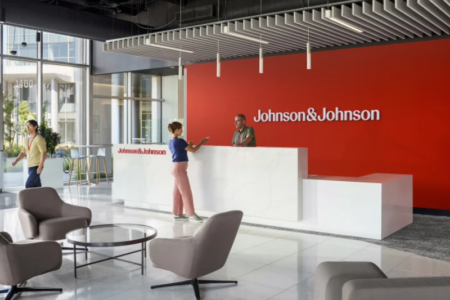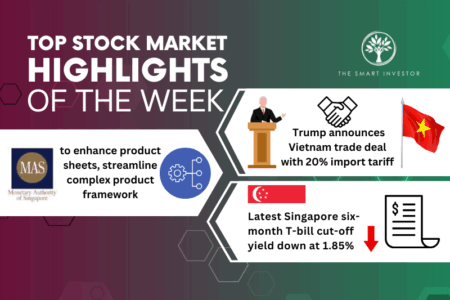Mapletree Logistics Trust (SGX: M44U), or MLT, has weathered the economic fallout of the COVID-19 pandemic and emerged relatively unscathed.
In fact, the REIT is looking to grow.
The industrial real estate investment trust (REIT) recently announced positive results for the second quarter of the fiscal year 2021 (Q2 2020), where net property income in the quarter grew 8.9% to S$118.9 million year-on-year.
The strong showing allowed MLT to raise distribution per unit (DPU) to S$0.02055, an increase of 1.5% year-on-year.
Growth amid a pandemic
Indeed, industrial REITs have shown their mettle amid the difficult economic conditions of 2020, as many of them cater to essential services like transportation, manufacturing and storage.
Boosted by their resilient showings, industrial REITs are out shopping for properties to enlarge their portfolios.
Earlier in September, Ascendas REIT (SGX: A17U) announced the acquisition
of a commercial property in Australia.
MLT’s peer, Mapletree Industrial Trust (SGX: ME8U), has also announced an acquisition proposal for a data centre and office property in Virginia, USA.
Not to be outdone, MLT has filled up its shopping cart and announced a spate of acquisitions for a total outlay of over S$1 billion.
The acquisitions
MLT is purchasing a total of 25 logistics properties, with 22 located in China.
In China, the REIT will buy the remaining 50% interest in 15 properties along with seven new properties. It will also acquire one property each in Malaysia and Vietnam.
The REIT also separately announced an acquisition for another warehousing property in Brisbane, Australia.
The respective properties are targeted by MLT for their high-quality facilities, which are all rated Grade A, except the Australian property.
Grade A logistics facilities are generally highly rated based on superior infrastructure, load-bearing capacity and location. Such facilities typically command an average rent premium of 20% over traditional warehouses.
According to market research, e-commerce tenants, a fast-growing market consumer of logistical spaces, prefer Grade A warehousing as the better facilities aid fast and accurate delivery.
A scarcity of Grade A warehouses in China, Malaysia and Vietnam also bode well for the prospective demand of the new acquisitions.
In China, only 7% of current warehousing supply is rated Grade A, while the figure is 11% in Malaysia and 21% in Vietnam.
In addition, a majority of the target properties are located near key population catchments and have access to key transport infrastructure. This will allow MLT to offer more diverse warehousing options and provide network benefits to the REIT.
MLT expects that these acquisitions can take advantage of structural trends in the logistics markets, where higher e-commerce adoption and rising consumption levels promise to provide attractive growth headwinds.
Portfolio impact
The acquisitions will see MLT’s assets under management grow by 13% to S$10.1 billion and adds further diversification to the REIT’s already-extensive portfolio.
By geography, MLT’s exposure to its largest market, Singapore, will reduce from 34% to 30% post-acquisition.
Revenue contribution from MLT’s largest tenant, CWT Pte Ltd, will be diluted from 8.6% to 7.6%.
MLT will also welcome JD.com Inc (SEHK: 9618) and logistics provider Cainiao as new entrants to their top ten tenant list, at 2.4% and 2.1% of portfolio revenue respectively.
The occupancy rates of the targeted buildings are also fairly strong at an average of 94.7%, although MLT’s overall portfolio occupancy rate will be trimmed by 0.5% to 97% post-acquisition.
However, it might be concerning that the acquisitions will reduce MLT’s weighted average lease expiry (WALE) from 4.2 years to 3.8 years. The Chinese properties, which form the bulk of this spate of acquisitions, have a WALE of just 2.1 years.
Although this means that MLT may be able to negotiate higher rental rates when the leases expire, it also leaves the REIT exposed to sudden economic downturns that could lead to negative rental reversions.
The financials
The total outlay by MLT for these 25 acquisitions is expected to be S$1.13 billion, which will be financed through a combination of debt and equity financing. This includes an issuance of consideration units worth S$300 million.
Another 319 million units of MLT were issued through a private placement and preferential offering, where the REIT raised S$644.1 million.
Unitholders will be happy to know that the acquisitions are both DPU and net asset value (NAV) accretive.
Pro-forma DPU is expected to rise 1.3% from S$0.08142 to S$0.08251, while pro-forma NAV per unit is estimated to increase 6.6% from S$1.21 to S$1.28 for the fiscal year ended 31 March 2020.
The REIT will also take up additional loans of S$228.3 million.
However, MLT’s gearing will be reduced from 39.5% as of 30 September 2020 to 37.4% post-acquisition due to the equity issuance.
This keeps the REIT’s gearing safely below the MAS-set limit of 50%, offering the REIT the room to make more debt-funded acquisitions should attractive opportunities present themselves.
Want to know which 4 blue chips have been doing well this year in spite of the pandemic? Download our FREE report where we cover 4 dividend blue chips that have been winning in 2020! CLICK HERE to download now.
Disclosure: Herman Ng does not own shares in any of the companies mentioned.




